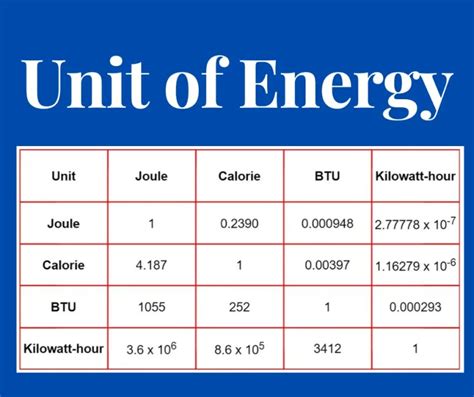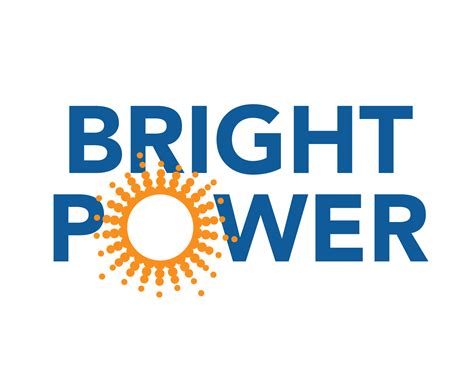The concept of power is multifaceted and can be understood through various lenses, including social, political, economic, and psychological perspectives. When discussing units of power, it's essential to consider the context in which power is being exercised or measured. In physics, power is typically measured in watts (W), which quantify the rate of energy transfer or conversion. However, in other domains, such as sociology or politics, power might be understood in terms of influence, control, or authority. Here, we'll explore the idea of 5 units of power, considering both literal and metaphorical interpretations across different fields.
Understanding Power in Different Contexts

Power, in its most basic sense, refers to the ability to do work or cause change. In physics, this is precisely defined and measured. However, as we move into other disciplines, the concept of power becomes more nuanced. For instance, in sociology, power might refer to the ability of individuals or groups to influence others, often through social structures or institutions. This form of power can be seen in leadership roles, social movements, or economic systems. In politics, power is often associated with governance, policy-making, and the ability to enforce laws and regulations.
Units of Power in Physics
In physics, the unit of power is the watt (W), which is defined as one joule per second. This measurement is crucial for understanding energy consumption, efficiency, and the capability of machines and devices. For example, a light bulb might have a power rating of 60 watts, indicating it consumes 60 joules of energy per second when operated. Other units of power include the horsepower (hp), which is more commonly used to describe the power of engines and other machines, and the kilowatt (kW), which is 1,000 watts and often used to measure electrical power consumption in homes and industries.
| Unit of Power | Description |
|---|---|
| Watt (W) | One joule per second, basic unit of power in the International System of Units (SI) |
| Horsepower (hp) | Approximately 745.7 watts, commonly used to measure the power of engines |
| Kilowatt (kW) | 1,000 watts, used to measure electrical power consumption |
| Megawatt (MW) | 1,000,000 watts, used for larger power consumption measurements such as in industrial settings |
| Gigawatt (GW) | 1,000,000,000 watts, used for extremely large power measurements such as national energy production |

Metaphorical Units of Power

Beyond the physical realm, power can be metaphorically understood in terms of influence, authority, and control. In sociology and politics, for example, power can be seen as the ability to shape public opinion, dictate policy, or enforce laws. Here, the “units” of power might be considered in terms of the scope of influence, the number of people affected, or the depth of control exerted.
Social and Political Power
Social power refers to the ability of individuals or groups to influence others, often through social structures, norms, or institutions. Political power, on the other hand, is typically associated with the state and its ability to enforce laws, collect taxes, and provide public goods. Both forms of power are critical in shaping societal outcomes and can be measured in various ways, including through electoral results, public opinion polls, or economic indicators.
Key Points
- Power has multiple meanings across different disciplines, including physics, sociology, and politics.
- In physics, power is measured in units such as watts, horsepower, and kilowatts, quantifying energy conversion rates.
- In social and political contexts, power refers to influence, authority, and control, with "units" of power considered in terms of scope and depth of impact.
- Understanding power in its various forms is essential for designing systems, influencing social outcomes, and governing societies effectively.
- The measurement and analysis of power are complex, requiring a nuanced approach that considers context, perspective, and the multifaceted nature of power itself.
As we navigate the complexities of power across different domains, it becomes clear that the concept is both unifying and diversely interpreted. Whether discussing the physical world of energy conversion or the social and political realms of influence and control, understanding power and its various "units" of measurement is crucial for progress and effective action.
What are the primary units of power in physics?
+The primary units of power in physics include the watt (W), horsepower (hp), kilowatt (kW), megawatt (MW), and gigawatt (GW), each measuring energy conversion rates at different scales.
How is power understood in social and political contexts?
+In social and political contexts, power refers to the ability to influence others, shape public opinion, dictate policy, or enforce laws, with its "units" considered in terms of influence scope and control depth.
Why is understanding power important across different disciplines?
+Understanding power is crucial for designing and optimizing systems in physics, influencing social outcomes in sociology, and governing effectively in politics, highlighting the need for a multifaceted approach to the concept of power.
In conclusion, the concept of 5 units of power, whether literal or metaphorical, underscores the complexity and multifaceted nature of power across different disciplines. By grasping these various interpretations and measurements of power, we can better navigate the intricacies of energy, influence, and control that shape our world.



